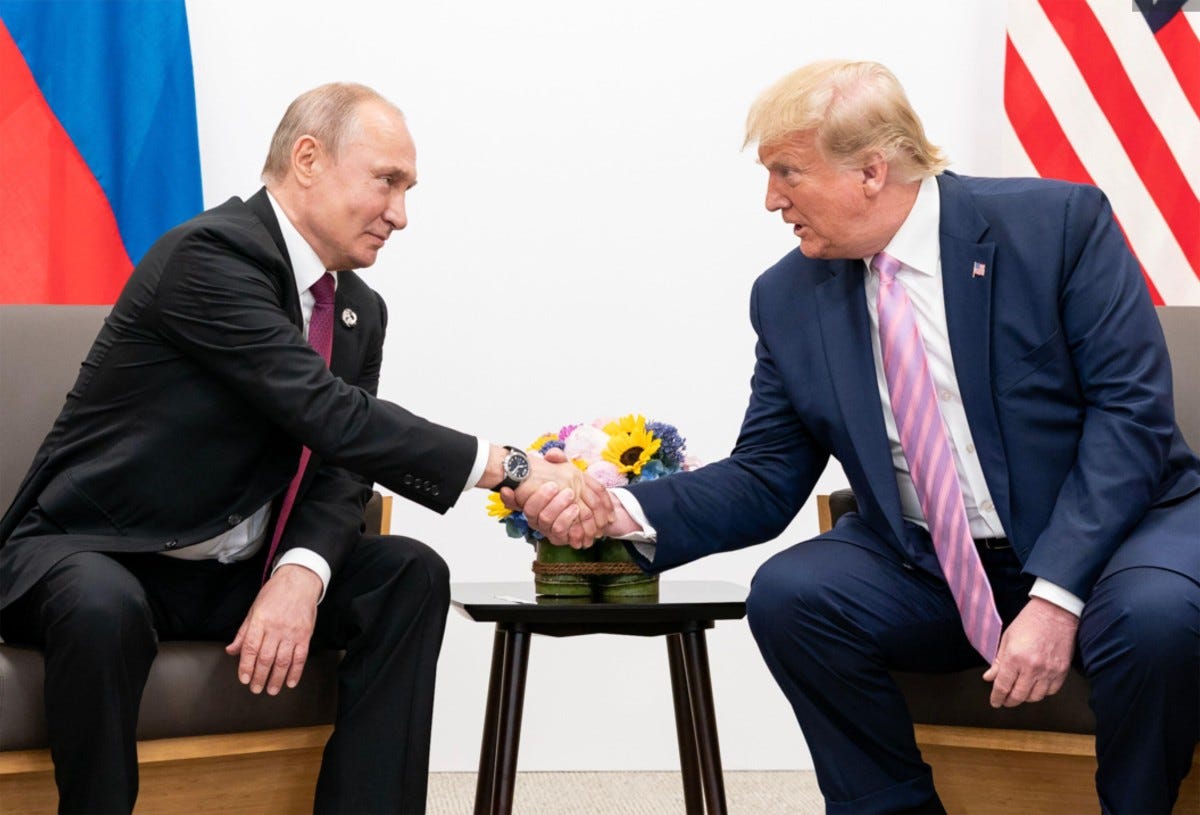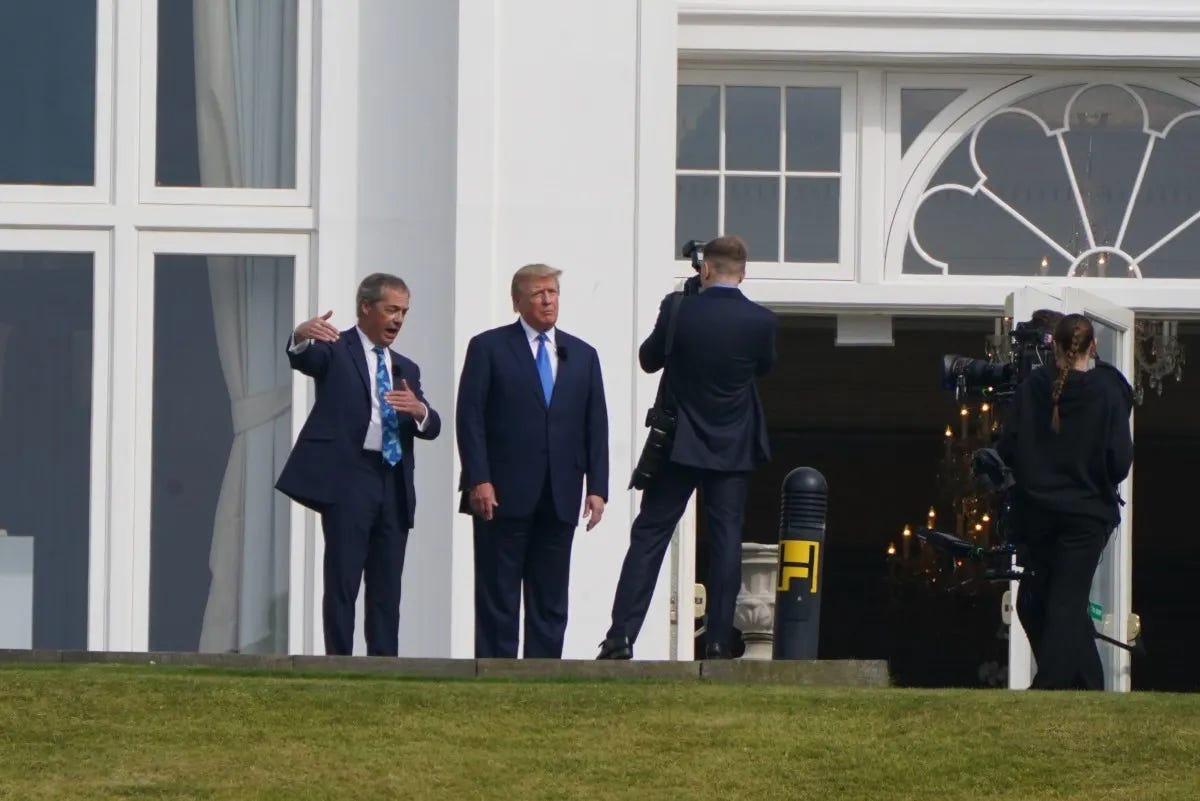
“No deal on Ukraine without Ukraine” came the cry from Kyiv and its European allies today, as they demanded not to be iced out of any talks, following Donald Trump’s bombshell announcement last night that he and Vladimir Putin have agreed to start peace negotiations “immediately”.
This afternoon, as well as insisting he won’t accept any agreement made without Ukrainian input, President Volodymyr Zelensky stressed that “Europeans need to be at the negotiating table too”.
Stunned leaders across the continent have spent the day scrambling to formulate their positions after Trump sprung the news on them yesterday of his “highly productive” 90-minute phone call with Putin, in which the two men agreed to “work together, very closely, including visiting each other’s nations”. A planned meeting will take place between Trump and Putin in Saudi Arabia in the “not too distant future”.
This is, at the risk of stating the obvious, a dramatic pivot in US foreign policy from the Biden administration, which denounced the Russian President as a “murderous dictator” and “pure thug”.
While European nations were all too aware, upon Trump’s re-election, that things were heading in this direction, the US president’s apparent failure to give them any advance warning of his highly consequential phone call doesn’t bode well for the continent’s future involvement. Two European officials told Bloomberg that key allies had no notice whatsoever.
It would certainly be in Putin’s interest to negotiate directly with Washington, over the heads of Kyiv and Europe.
But, as one British defence official stressed to The Times today: “Ukrainians haven’t fought for three years, lost their sons and daughters, only to be cut out of discussions on their future”. Indeed.
Moscow and Washington both made noises this evening about involving Kyiv in peace talks but were decidedly vague.
Kremlin spokesman Dmitry Peskov said Ukraine “will of course one way or another be taking part in the negotiations”, while US defence secretary, Pete Hegseth, confirmed that negotiations “will be had with both” [Zelensky and Putin].
Hegseth, who is in Europe this week meeting with defence chiefs, has already provided a teaser of some of the concessions that Washington is willing to offer Putin on behalf of Ukraine. Yesterday, he urged Ukrainians to give up on their ambition of ever joining NATO, and labelled it an “unrealistic” goal for Ukraine to recover its pre-2014 borders.
Today, Hegseth laid out his position towards European security more generally: “Make NATO great again” – which roughly translates to: Europen nations must accept far greater responsibility when it comes to funding the military alliance.
While not an entirely unreasonable demand, the target Washington has set – of 5 per cent of GDP defence spending for European NATO countries – will be immensely challenging for alliance members.
Even NATO members closer to meeting it – such as Estonia and Lithuania – have said they won’t be able to boost spending to 5 per cent of GDP without EU funds, while Poland, Italy and others want a change in the EU’s rules so they can increase defense budgets without violating the bloc’s deficit and debt limits.
Meanwhile, it remains unclear how far Putin will be willing to compromise in these looming negotiations. His so-called peace proposal of June 2024 – a plan under which Russia would get to keep all of the Ukrainian territory it has seized, plus some more land still under Ukrainian control – doesn’t offer much grounds for hope.
After almost three years of bloodshed, there will be at least some Ukrainians feeling a degree of relief at the prospect of an end to fighting, even if peace comes with some costly trade-offs. Polls from Kyiv indicate that support for a peace deal has grown over the past year.
Yet many across Europe today will be unnerved by the echoes of history.
“Munich 2… Europe, brace yourself,” warned Latvian MEP, Rihards Kols, as he alluded to the 1938 “peace for our time” declaration, signed by Neville Chamberlain in Munich. A declaration in which Britain and France, without Prague at the table, sacrificed territory in Czechoslovakia to Germany.
This attempt to appease Hitler ultimately strengthened him and set the scene for the Second World War.
Hence why it’s unsurprising that NATO chief, Mark Rutte, warned today that the European military alliance must switch to a “wartime mindset”.
Caitlin Allen
Deputy Editor
Gerald Warner
America’s counter-revolution will act as template for Reform UK

READ HERE
Giga Watt
Reform UK’s new energy policy is indescribably bad

READ HERE
Mixed developments for Reeves – The UK economy unexpectedly grew at the end of last year, by 0.1 per cent in the final quarter of 2024, in a welcome development for Rachel Reeves. Less welcome are the reports today that she was investigated when she was a manager at Halifax Bank of Scotland for an expenses scandal. The Chancellor’s lawyer denied the allegations and her spokesperson said she was “not aware of an investigation.”
Car drives into crowd in Munich – At least 28 people have been injured after a driver – a 24-year-old Afghan asylum seeker – rammed into a group during a trade union demonstration in Munich. German chancellor, Olaf Scholz, has stated that he “must be punished and then leave the country,” while opposition leader Friedrich Merz pledged to “impose law and order decisively” if he becomes chancellor after the national elections on 23 February. The tragic incident will offer a pre-election boost to Germany’s anti-immigration AfD party.
Farmers protest latest – Keir Starmer was forced to cut short a visit to a housing development in Buckinghamshire today, where he hoped to announce the town-building policy, due to protests by farmers. Around a dozen tractors and agricultural vehicles reportedly blocked the road near the Eastbrook development in Milton Keynes as part of a series of protests against changes to inheritance tax in the budget.
Hamas says it will comply with hostage deal demands – Hamas has changed its position and said it will continue to release Israeli hostages, handing over three more on Saturday as originally planned. Israel said that this demand must be met by the deadline, otherwise the war will resume.
-
Without proper legal safeguards, MPs cannot vote for assisted dying. Catherine Atkinson in Prospect.
-
Italy is Trump’s new bridge to Europe. Giovanni Legorano in Foreign Policy.
-
No, Prime Minister – politicians will never reform Whitehall. Tim Knox in CapX.
-
Donald Trump has already delivered a win for Russia. Ian Garner in The New Statesman.
-
The day the Ukraine war ended. The conflict isn’t over, but its fate now appears clear. Jonathan Lemire in The Atlantic.
